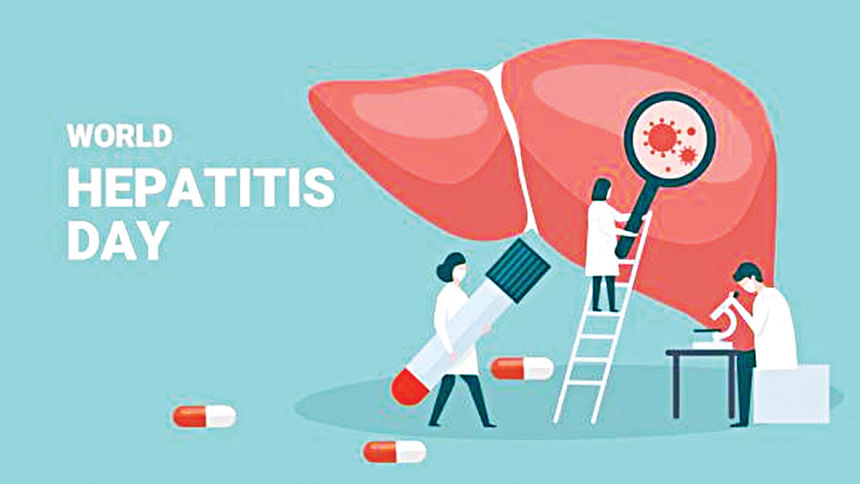Hepatitis—let us break it down

World Hepatitis Day is observed annually on 28 July to raise awareness of viral hepatitis, an inflammation of the liver that causes severe liver disease and liver cancer.
The 2025 theme, "Hepatitis: Let us break it down," calls for urgent action to dismantle financial, social, and systemic barriers—including stigma—that hinder hepatitis elimination and liver cancer prevention.
Key messages
1. Hepatitis is a leading cause of liver cancer—and a growing killer. Chronic viral hepatitis causes 1.3 million deaths annually, mostly from liver cancer and cirrhosis—that is 3,500 deaths per day, similar to tuberculosis. Hepatitis B and C spread silently, with 6,000 new infections daily. Despite being preventable and treatable, the disease burden rises, especially in regions with limited access to care.
2. Knowing your status stops liver cancer. Most people with hepatitis do not know they are infected. Early diagnosis leads to life-saving treatment and cancer prevention. Testing—especially in endemic regions or among high-risk groups—is vital to ending hepatitis.
3. We can prevent 2.8 million deaths by 2030—if countries act now. Elimination is possible. Vaccines, curative therapies, and proven tools exist to stop transmission. But most cases are diagnosed too late. Achieving elimination requires national commitment, strategic investment, and public health systems that embed hepatitis services in primary care. Early diagnosis and integrated, people-centred care will save lives and prevent liver cancer.
Call to action: eliminate hepatitis to prevent deaths and cancer
• Get tested for hepatitis B and C.
• Ensure newborns receive the hepatitis B vaccine within 24 hours of birth.
• Learn the facts; talk to a healthcare provider about early testing and treatment.
• Help end stigma by sharing accurate information.
• Lead and fund awareness campaigns linking hepatitis care to liver cancer prevention.
• Expand hepatitis B birth-dose vaccination, safe blood/injection practices, and harm reduction.
• Scale up affordable, decentralised testing and treatment through primary care, including HIV, NCDs, cancer control, and maternal/child health platforms.
• Embed hepatitis services into universal health coverage and national insurance schemes.
• Engage stakeholders and invest in strong data systems for accountability.
• Prioritise early diagnosis and treatment, especially in high-burden and underserved areas.
• Decentralise services to primary and district health centres.
• Integrate hepatitis prevention into maternal and child health programmes.
• Ensure free or universal access to testing and treatment.
• Mobilise sustainable funding and use data to track progress.

 For all latest news, follow The Daily Star's Google News channel.
For all latest news, follow The Daily Star's Google News channel. 



Comments